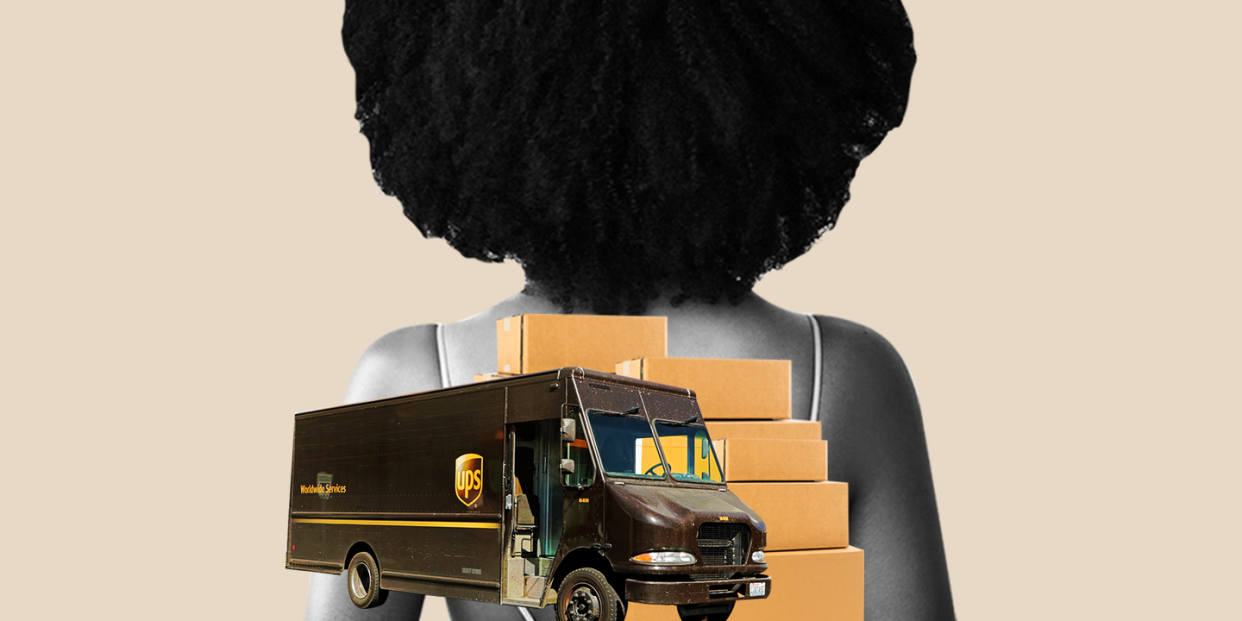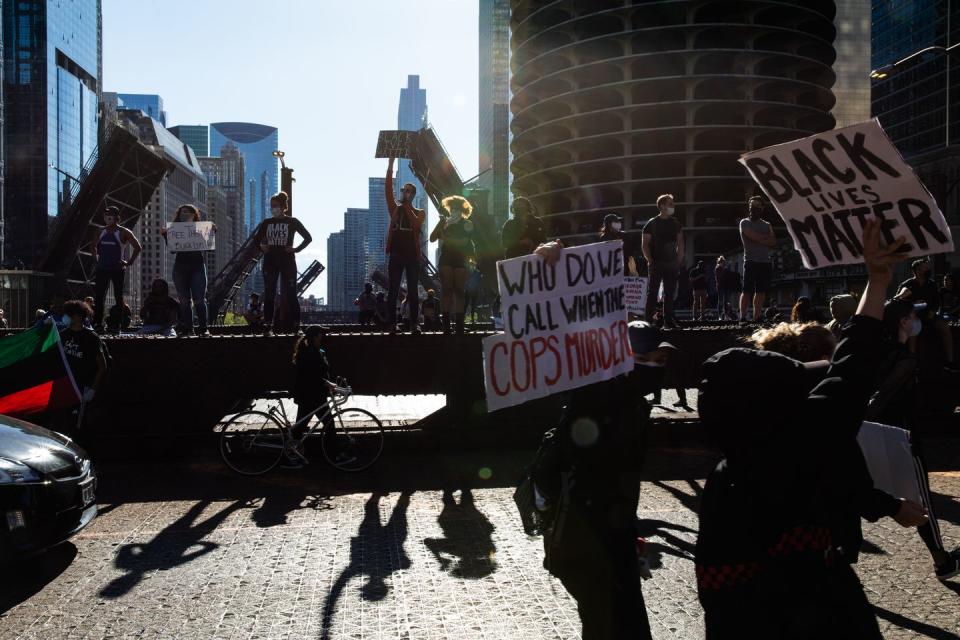What Black Employees Really Think of UPS’s New Natural Hair Policy

Last week, UPS passed a policy that would allow its employees to wear natural and protective hairstyles. While the public was excited that the people who deliver our packages all across the country could finally feel more comfortable at work, it was also bittersweet. Why was this policy even created in the first place? And why were these rules still on the books in 2020?
I was especially curious to know more about the reaction inside the century-old company, so I connected with a UPS employee who asked to remain anonymous for fear of retaliation about what it’s like to be a Black person at the company right now. You can read all the deets, in their words, below.
It’s wild because I didn’t even think that people outside of UPS would find out or even care about this new policy. It’s always been a thing, though, because all the higher-ups are like, “Oh, shave your beard.” For operations (these are the guys who process packages in the warehouses), it makes sense because you literally could die if your beard is long and gets caught in a machine. But that’s different than feeling like you have to straighten your hair every day for work.
Our new CEO [Carol Tomé] is amazing. Our old CEO [David Abney] used to say things like, “Oh, I signed this anti-racism pledge,” but there was no action behind his words. It was frustrating for Black people and other employees of color. Like, we’re the ones out here through snow, sleet, and rain delivering packages, and we’re getting lip service. It’s public knowledge internally and externally that UPS is a very conservative company.
I haven’t really been comfortable talking about Black issues at work. It depends on where exactly you’re located, but the overwhelming majority of people who work at UPS are very conservative. Historically, that’s who this company is, and as people of color, we just had to accept that. It sucked. And if you spoke up about any issues, you’d be the whiny person of color.
But over the past four or five years, it felt like the company couldn’t ignore diversity or race anymore. We’re starting to actually talk about it. This year, after Carol took over, was the first time I’ve seen us actually do something that would make me impressed. We have an equity, justice, and inequality task force now. Since she started eight months ago, I’ve seen more action than in all the years I’ve been at UPS. Rather than give minorities what the C-suite thinks they want based on what a couple of white people found out from a consultant, leadership is really making an effort to listen and provide platforms for us to give feedback. And then they’re holding their feet to the fire to be like, “Okay, we heard you. That then was wild of us. We’re going to do this now, because we heard you.”
With the hair policy, it’s kind of bittersweet. I’m afraid of being singled out or stared at or looked at, because my coworkers don’t interact with Black people after work. When I come in with my natural hair, it’s a whole thing. And no one wants to deal with that. I just want to do my job and go home. So it’s still not like we’re so excited. It’s kind of like, Okay, thanks for making it okay for me to wear my hair how it grows on my head.

The UPS is very behind on Black issues. The majority of my company is not as open-minded as the majority of America who chose Biden in the presidential election. The general group think is very out of date. The average person at UPS may not be a Trump supporter, but they’re the “all lives matter” crowd. I had a coworker yell at me trying to explain to me why I was wrong about Black Lives Matter and why he was right. One of my coworkers told me that THE white people WE WORK WITH don’t even make eye contact with her.
They don’t want to talk about race. That’s what it’s like for Black employees.
Under Carol, this is the first time I’m really starting to see a difference. People can’t ignore these issues anymore, and she’s putting processes in place and that shows intention. But it’s like trying to turn a ship around. This isn’t a little tugboat, it’s a huge cruise ship, so it’s going to take time.
You Might Also Like

